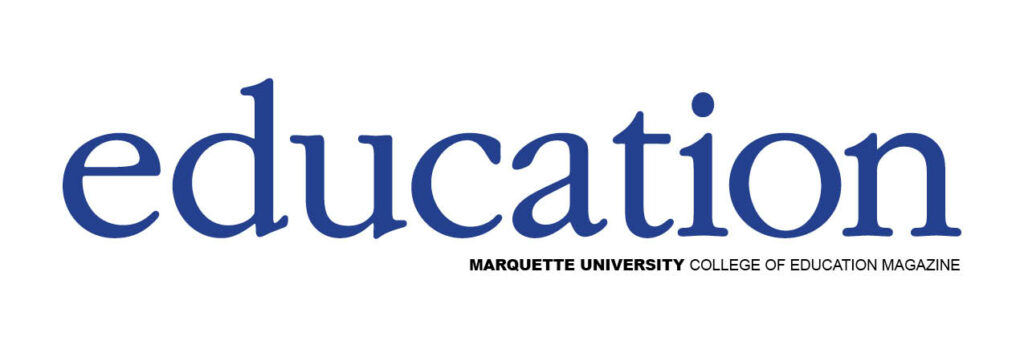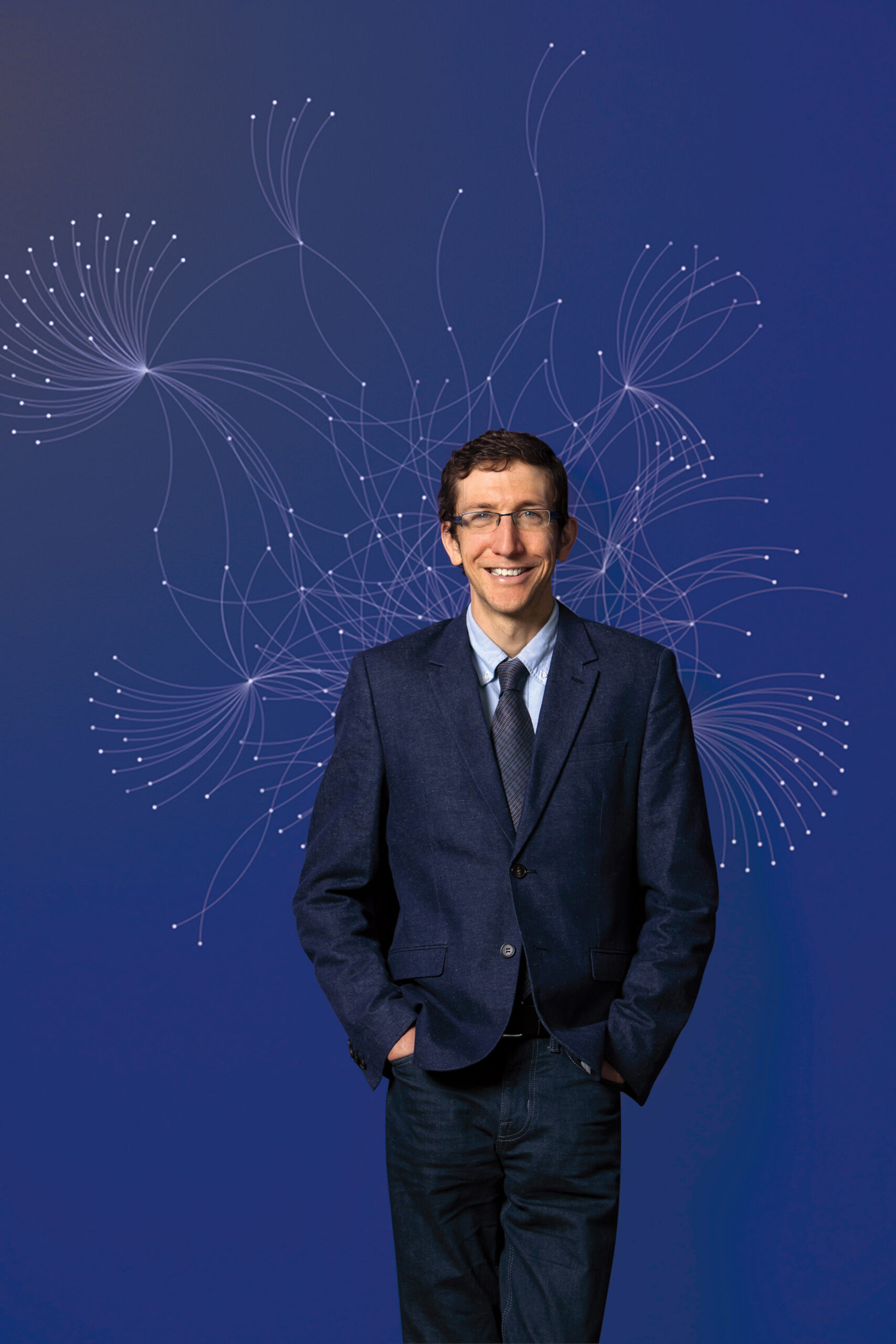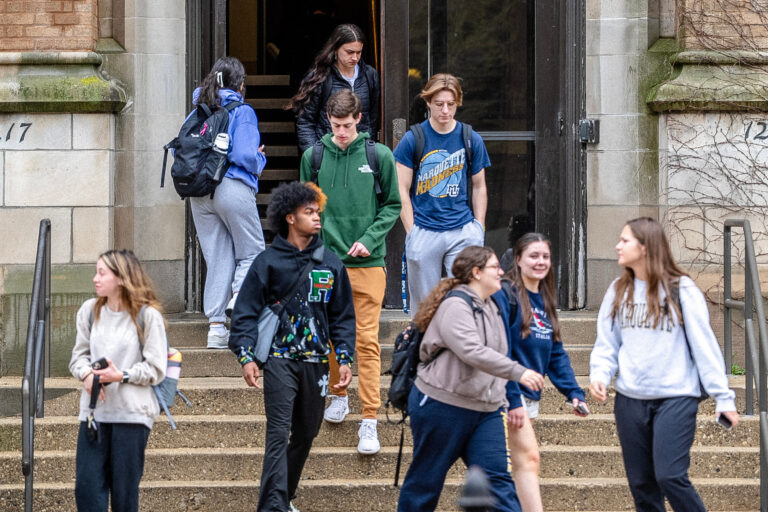A College of Education team leads a new project to better inform Black, Latino and Latina students of available resources that can improve their postsecondary education success.
By Claire Curry
Before she arrived at Marquette to pursue her doctorate in educational policy and leadership, Verónica Mancheno spent 18 years working as an elementary and high school teacher and administrator in schools serving minoritized communities. Also the mother of two teenage sons, Mancheno has seen firsthand the inequities that Black, Latino and Latina students face every day.
“I can think of a myriad of stories that sound like they come right out of a movie script,” says Mancheno, who was born and raised in Ecuador and moved to the U.S. in 1996 and to Milwaukee in 2007. “I have witnessed, both as a mother and as a teacher, hundreds of incidents … the types of horror stories that fill us with indignation because they are just so clearly wrong.”
Perhaps the most pervasive damage, she adds, is the compounded effect of institutionalized daily practices that youth of color constantly navigate within educational systems. “Our youth experience erasure, invisibility and direct assaults on their dignity,” she says.
Addressing such inequities is what motivated Mancheno to advance her education, so when she was offered a research assistantship with a project aimed at improving the experiences of Milwaukee-area high school and college students of color, she enthusiastically accepted.
That project — the Black and Latino/a Ecosystem and Support Transition (BLEST) Hub — was established by Marquette’s Center for Urban Research, Teaching and Outreach and Milwaukee Area Technical College. CURTO brings together community and campus experts to facilitate research and collaborations that affirm human rights and dignity.
Dr. Robert Smith, CURTO director and Harry G. John Professor of History in the Klingler College of Arts and Sciences, and Walter Lanier, former director of student resources at MATC, launched the BLEST Hub in 2019 to improve the enrollment and retention of Milwaukee’s Black, Latino and Latina students in postsecondary education and support them at transitional moments between high school and college.
Some of the enrollment and retention challenges facing this population include the changing expectations these students face, piled on top of a lack of resources, support and tools for navigating the complexities of higher education, according to Dr. Gabriel Velez, BLEST Hub faculty director and assistant professor of educational policy and leadership. “In their high schools, these students have developed routines, support networks and relationships that help them to be successful. They then arrive to a new, unfamiliar and sometimes unwelcoming or even hostile environment without these tools and resources,” he says.
Within Milwaukee lies a vast and vibrant ecosystem of community organizations that are striving to close the divides and increase opportunities for young Black, Latino and Latina students.
“There are a lot of great organizations doing work in Milwaukee to help young people think about and experience what college life will be like before arriving, as well as keeping them engaged and part of a network of supports as they make this transition,” Velez says.
Velez, Mancheno and Saúl López, another educational policy and leadership graduate student, have been interviewing leaders of organizations that serve Black, Latino and Latina students, charting data and mapping out this resource ecosystem. The data is reflected in a recently launched online digital map and to date, more than 200 organizations are represented — in education, business, government and the nonprofit sector.
Enlisting faculty and students in the College of Education for the project made eminent sense, according to Smith. “They took these visions and ideas, asked the tough questions and added concrete considerations and thought to build a system that can engage community expertise and factor in policy curriculum and student development,” Smith says. “When folks see themselves in that ecosystem, it’s a different conversation.”
Mancheno agrees the map itself holds power. “It is for organizations to see themselves connected within the larger city. It creates a lot of reflection, wonder and curiosity,” she says. “I believe that is very good to foster in a city that is segregated.”
López thinks the map paints a refreshingly positive picture of his native city. “For me, this project is personal. It has forced me to step out of my Milwaukee bubble and get to know the city from a different perspective,” he says. “We have assets. We have amazing people working here.”
Sharing the map as a public resource, exploring collaborative grant opportunities and providing student programming are among the BLEST Hub’s ambitious next steps, according to Velez.
“This involves planning events like the Leadership And Brotherhood Summit that Marquette will host in the spring in conjunction with Milwaukee Public Schools,” he says. The BLEST Hub will also work with the three largest public and largest private educational institutions in Milwaukee to promote dual enrollment and facilitate students transitioning between Milwaukee Public Schools, MATC, the University of Wisconsin–Milwaukee and Marquette.
Ultimately, the BLEST Hub’s goal is to improve access to resources that support Milwaukee’s students of color in achieving their education and career goals.
“I decided to go for a Ph.D. because I wanted to find out what may be some root causes of disparities in educational outcomes and which ones are within the power of the education world to address,” Mancheno says. “There’s a degree of satisfaction in attempting to do things better, to service students better, to teach better, to run schools better.”




